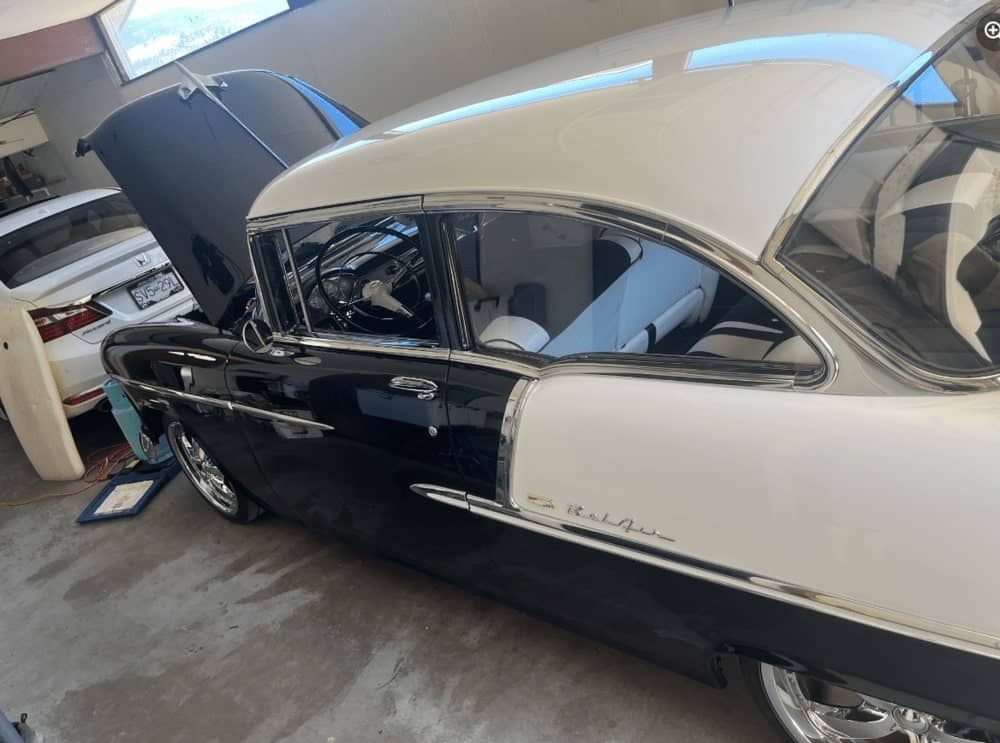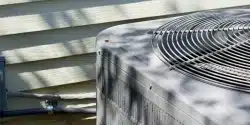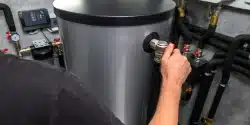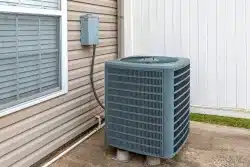Husky Air Conditioning Repairs At Your Location
In the Okanagan, where the summers are warm, and the drive can be long, a functioning automotive air conditioning system is not just a comfort but a necessity. Whether you’re a resident or a visitor exploring the region’s scenic beauty, encountering AC issues can be a significant inconvenience. This guide provides practical advice on what to do when you need mobile automotive air conditioning repair in the Okanagan, ensuring you’re back on the road with minimal disruption.
Understanding Your Vehicle’s AC System
Understanding your vehicle’s air conditioning system is crucial for addressing any issues. The system is designed to keep the cabin cool and comfortable, and it consists of several key components:
- Compressor: At the heart of the AC system, its compressor soothes the refrigerant, turning it into a hot, high-pressure gas. This process is essential for the refrigerant to absorb heat from the car’s interior. The compressor is usually belt-driven and should be checked regularly for any signs of wear or leaks.
- Condenser: The condenser acts like a radiator designed to dissipate heat. The hot, pressurized gas from the compressor moves to the condenser, where it loses heat and turns into a cooler liquid form. The condenser is often located at the front of the car, and it’s essential to ensure that it is not blocked by debris or damage, as this can impede its ability to cool the refrigerant.
- Evaporator: Located inside the cabin, the evaporator plays a crucial role in cooling the air. Here, the refrigerant absorbs heat from the cabin air and evaporates, resulting in cooler air circulated back into the cabin. Regular inspection is beneficial because the evaporator can clog or leak.
- Refrigerant: This fluid circulates through the entire system, absorbing and releasing heat. Over time, the refrigerant level can decrease, leading to reduced system efficiency. It’s essential to check the refrigerant level and replenish it if necessary. However, handling refrigerants requires professional expertise due to environmental regulations and technicalities.
Regular maintenance of these components is critical to ensuring the efficiency and longevity of your vehicle’s AC. Understanding their functions helps in the early identification of potential issues, allowing for timely intervention and repairs. Regular checks, especially before the onset of warmer months, ensure that each part of the AC system functions appropriately, providing a comfortable and relaxed driving experience.
Regular Maintenance Tips
Maintaining your car’s air conditioning ensures its longevity and effectiveness. By following these maintenance tips, you can keep your AC system running smoothly and avoid common problems:
- Check for Refrigerant Leaks: A refrigerant leak is one of the most common issues with car AC systems. These leaks can lead to reduced cooling efficiency and, over time, damage other system components. Use a refrigerant leak detector or check for oil stains on AC components, as these can indicate a leak. If you suspect a refrigerant leak, it’s best to have it repaired by a professional due to the technicality and environmental considerations involved in handling refrigerants.
- Inspect the compressor Regularly: The Compressor is vital for the AC system’s function, pressurizing the refrigerant to absorb heat from the car’s cabin. Cars for unusual noises and check for signs of wear or damage. A malfunctioning compressor can lead to a non-functioning AC system, so early detection of any issues is critical.
- Ensure the Condenser is Clear and Functioning: The condenser should be free of blockages like leaves, dirt, or debris, as these can impede its ability to dissipate heat. Inspect the condenser, usually before the radiator, for any signs of damage or clogging. A blocked or damaged condenser can drastically reduce the cooling efficiency of your AC system.
- Replace Cabin Air Filters: The cabin air filter filters the air into your car’s interior through the AC system. Over time, these filters can become clogged with dust, pollen, and other debris, reducing airflow and potentially causing a musty odour. Check your vehicle’s guidance on how often to replace the cabin air filter, but generally, it should be done every 15,000 to 30,000 miles.
- Run the AC Regularly: Even during cooler months, run your AC system regularly. This helps keep the system lubricated and prevents seals from drying out, which can cause leaks. Running the AC for about 10 minutes a week is typically sufficient to maintain the system in good condition.
- Schedule Annual Professional Check-Ups: While essential maintenance can be done at home, an annual check-up by a professional is recommended. They can perform more complex checks, such as ensuring the system is holding pressure, checking the thermostat, and ensuring all components are in optimal condition.
By following these regular maintenance tips, you can help ensure that your car’s air conditioning system remains effective and efficient, providing you with a comfortable driving experience, especially during the hot months. Regular care prevents major breakdowns and can save you money on costly repairs in the long run.
Identifying Common AC Problems
Identifying common problems with your car’s air conditioning system is critical to ensuring it operates effectively and addressing any issues promptly. Here are some typical AC problems you might encounter, along with their potential causes:
- Insufficient Cooling: If your car’s AC is not as effective as it used to be, there could be several reasons. The most common cause is a low refrigerant level, usually due to a leak in the system. Other potential causes include a malfunctioning compressor, a clogged expansion valve, a faulty blower motor, or a damaged condenser.
- Strange Noises: Unusual sounds coming from your AC can be alarming. If you hear rattling noises, it could be due to loose or broken components like the compressor clutch or fan belt. Buzzing or hissing sounds might indicate a refrigerant leak. Whistling or grinding noises could indicate a more severe issue, such as a failing compressor.
- Foul Odors from AC Vents: Bad smells emanating from the AC vents are unpleasant and can also indicate mould or mildew buildup in the system, especially within the evaporator core. This is often due to moisture accumulation, which can happen when the AC system hasn’t been used recently or if the drain tube is blocked.
- AC Blowing Hot Air: If your AC is blowing hot air instead of cold, this could be due to a failed compressor, a refrigerant leak, a clogged expansion valve, or an electrical issue. Addressing this problem quickly is essential, as it can further damage the system.
- Intermittent Cooling: If the cooling capacity of your AC is fluctuating, it could be due to a variety of issues, such as a dirty air filter, a malfunctioning thermostat, or electrical issues. Intermittent cooling can also be caused by a failing compressor or problems with the AC’s pressure ACs.
- Water Inside the Car: If you notice water inside your vehicle, particularly under the dashboard, it could be due to a clogged AC drain hose. This issue is typically easy to fix but should be addressed promptly to prevent water damage to your vehicle’s vehicle.
When you notice these common problems, assessing whether you can handle the fix yourself or if it requires professional attention is essential. For instance, replacing a cabin air filter or unclogging a drain hose can be DIY tasks. Still, issues like refrigerant leaks, electrical problems, or compressor failures usually necessitate a skilled technician’s diagnosis and repair of these issues can prevent more significant problems down the line, ensuring your car’s AC remains in optimal working condition.
Working with Kelowna Air Conditioing Experts: Husky Heating and Cooling
When facing an AC issue that requires professional intervention, selecting an exemplary mobile repair service is crucial. Choosing a reliable and experienced service provider in the Okanagan is important. Key factors such as the technician’s automotive AC systems for heavy equipment, cars and trucks, customer reviews, service range, response time, and cost transparency should be discussed.










